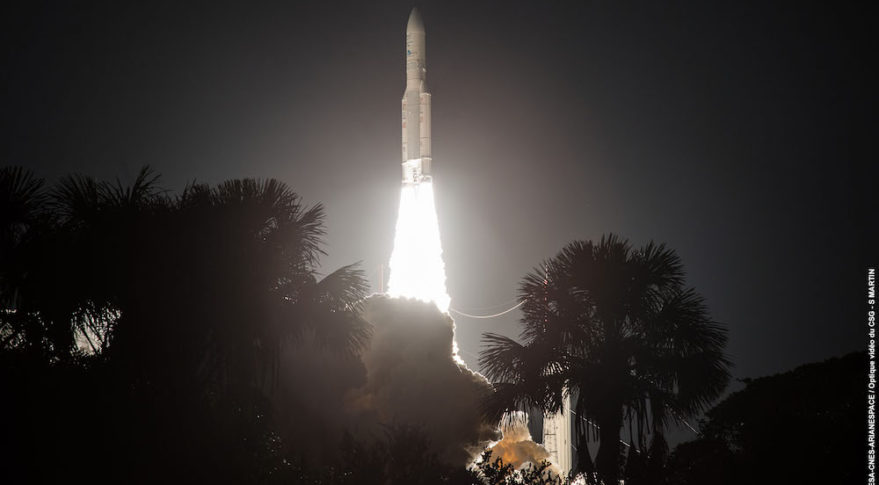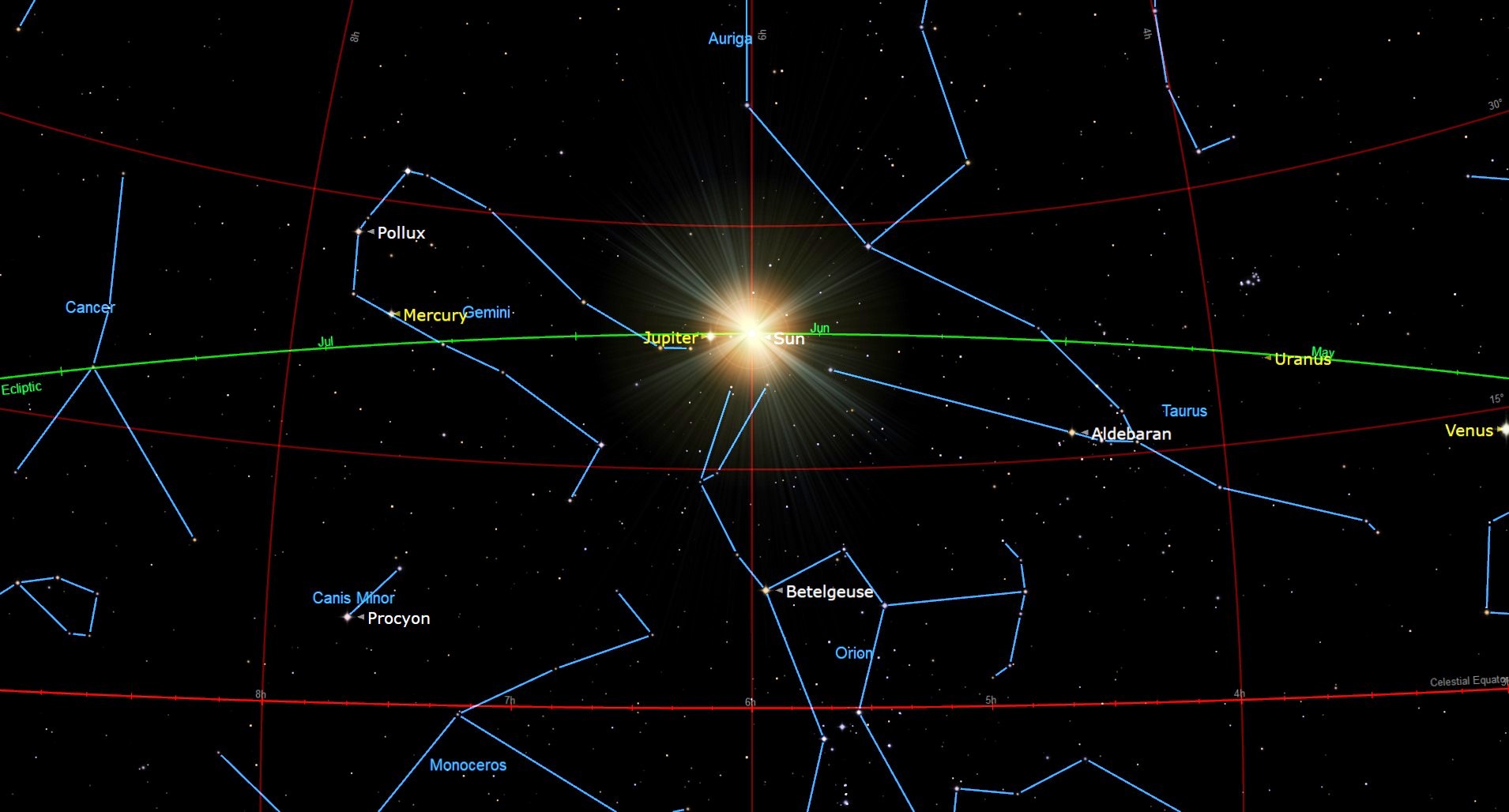Ariane 5 Successfully Places Two Intelsat Satellites Into Orbit

PLYMOUTH, Massachusetts – A European Ariane 5 rocket on Aug. 24 successfully placed two Intelsat-owned telecommunications satellites into geostationary transfer orbit, a launch that included the second of Intelsat's do-or-die Epic high-throughput satellites.
Operating from Europe's Guiana Space Center on the northeast coast of South America, the Ariane 5 orbited the Intelsat-33e Epic and the Intelsat-36 C- and Ku-band wide-beam satellites in the vehicle's 73rd consecutive success and the fourth in 2016. Both satellites were reported by Intelsat to be healthy in orbit and sending signals.
The Intelsat-36, built by Space Systems Loral of Palo Alto, California, weighed 3,250 kilograms at launch. Carrying a C- and Ku-band payload, the satellite will be co-located with the Intelsat-20 satellite at 68.5 degrees east longitude.
South African direct-broadcast television provider MultiChoice, a long-time Intelsat customer, will use Intelsat-36 to expand its broadcast offering. Intelsat-36 is scheduled to enter service in early October.
Ken Lee, Intelsat senior vice president for space systems, said after the launch that Space Systems Loral built the satellite "in a remarkable 24 months" to keep to the demanding schedule asked of the manufacturing program.
Intelsat-33e is the second of seven Epic-class satellites Intelsat intends to essentially remake the company as it traverses a delicate period of high debt service and low overall revenue growth. It weighed 6,575 kilograms at launch – double the weight of the Intelsat-36 – and was in the upper berth on the Ariane 5.
Intelsat-33e, with a high-throughput satellite (HTS) payload including multiple spot beams in Ku-band, will replace Intelsat-904, and provide expanded services, at 60 degrees east.
Breaking space news, the latest updates on rocket launches, skywatching events and more!
The Epic HTS payloads are designed to offer lower-cost bandwidth to open new markets to satellite connectivity, including aeronautical and maritime broadband. Intelsat is counting on the Epic series, with two more to launch in 2017, to provide enough product differentiation to allow the company to return to revenue growth and meet its debt obligations.
Intelsat said Intelsat-33 should begin service in early November.
Originally published on SpaceNews.
Join our Space Forums to keep talking space on the latest missions, night sky and more! And if you have a news tip, correction or comment, let us know at: community@space.com.
Peter B. de Selding is the co-founder and chief editor of SpaceIntelReport.com, a website dedicated to the latest space industry news and developments that launched in 2017. Prior to founding SpaceIntelReport, Peter spent 26 years as the Paris bureau chief for SpaceNews, an industry publication. At SpaceNews, Peter covered the commercial satellite, launch and international space market. He continues that work at SpaceIntelReport. You can follow Peter's latest project on Twitter at @pbdes.
